 | Aaron Schuyler - Measurement - 1873 - 508 pages
...Am. 1.03062. DIVISION BY LOGARITHMS. 16. Proposition. The logarithm of the quotient of two mimbers is equal to the logarithm of the dividend minus the logarithm of the divisor. (" (1) 6*= m; then, by def., log m = x. Let -j ^(2) b1-n; then, by def, log n = y. . (1) -*- (2) =... | |
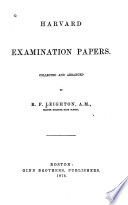 | 1873 - 192 pages
...the following quantities (to six significant figures): (0x26534)^ V/(0.0357635) III. 1. Prove that the logarithm of a quotient is equal to the logarithm of the dividend diminished by the logarithm of the divisor. 2. Find, by logarithms, the values of the following quan*-•... | |
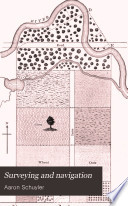 | Aaron Schuyler - Navigation - 1873 - 536 pages
...A»a. 1.03068. DIVISION BY LOGAEITHMS. 16. Proposition. The logarithm of the quotient of two KMM&CTT it equal to the logarithm of the dividend minus the logarithm of the divisor. • (1) 6•= TO; then, bv del. log » = z. Let ' I (2) 6 • = n; then, by de£. log n = y. = "; then,byde£,... | |
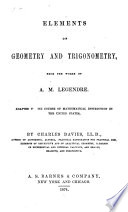 | Adrien Marie Legendre - Geometry - 1874 - 500 pages
...( 5 ), member by member, we have, •*-•-:• whence, by the definition, xy = log ( 1.) That is, the logarithm of a quotient is equal to the logarithm of the dividend diminished by that of the divisor. 7. Raising both members of (4) to the power denoted by p, we have,... | |
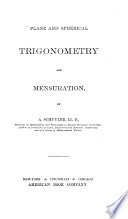 | Aaron Schuyler - Measurement - 1875 - 284 pages
...Ans. 1.03062. DIVISION BY LOGARITHMS. 16. Proposition. The logarithm of the quotient of two numbers is equal to the logarithm of the dividend minus the logarithm of the divisor. Г (1) b" = m; then, by def., log m = x. Let i. (_ (2) b * — - n; then, by def., log n — у. (1)... | |
 | Carl Bremiker - Logarithms - 1875 - 544 pages
...two factors taken separately. Further, the logarithm of the quotient of one number divided by another is equal to the logarithm of the dividend minus the logarithm of the divisor. The logarithm of the power of any quantity is equal to the product of the logarithm of the quantity... | |
 | Horatio Nelson Robinson - Algebra - 1875 - 430 pages
...= log. n. But by multiplication, mn = a'+' ; therefore, log. mn — x + z = log. m + log. n. 4. 7%e logarithm of a quotient is equal to the logarithm of the dividend diminished by the logarithm of the divisor. For, let m = a', n = a' ; then x — log. m, z = log. w.... | |
 | Benjamin Greenleaf - Trigonometry - 1876 - 204 pages
...equations, member by member, we have MN— a' a" = 0? + g. Therefore, log (MXN) = x -\-y = log M+ log Ж 10. The logarithm of a QUOTIENT is equal to the logarithm of the dividend diminished by that of the divisor. For, by Art. 9, we have M=. a?, N — a". Dividing the first equation... | |
 | Frederick Augustus Porter Barnard - Encyclopedias and dictionaries - 1877 - 916 pages
...the product of any number of 1'actors . is equal to tho sum of the logarithms of the factors; 2d, ¡ the logarithm of a quotient is equal to the logarithm of the dividend diminished by that of the divisor; ;>d. the logarithm of any power of a quantity is equal to the logarithm... | |
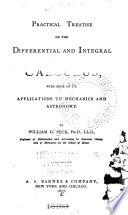 | William Guy Peck - Calculus - 1877 - 238 pages
...quantity —, s being a function of x, S and we have, after reduction, fs + ds\ ,,/iZs ds* ds3 . But the logarithm of a quotient, is equal to the logarithm of the dividend, diminished by the logarithm of the divisor; changing the form of the first member and suppressing all... | |
| |